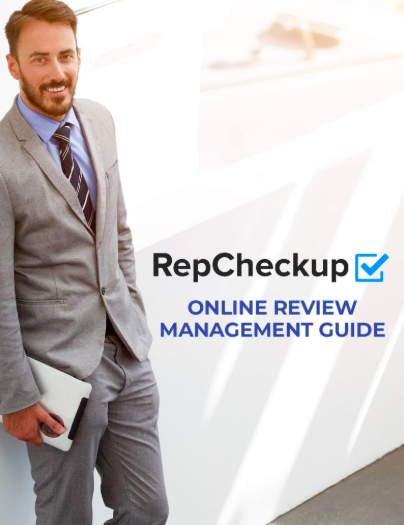
Importance of Online Reputation Management for 2018

It’s been said that the Internet would first expand our world, but ultimately would reduce it. We’ve certainly seen the expansion, with Internet technologies giving us access to knowledge and capabilities that were a fantasy less than a generation ago.
But what does it mean to reduce our world?
If you live in a small town, you already experience this. You probably already have a pretty good idea which mechanic is going to tell you that it’s time to replace the timing belt and which ones are going to tell you “it’s got plenty of life left.” And if you’re new in town and you ask for recommendations, Hank, the barber, probably told you not only where to go to get your car fixed, but also which doctor or lawyer he trusts.
82% of U.S. Adults Read Reviews
But that’s small town America. If you live in a bigger city or in the suburbs–like most people in this country–you depend on the Internet to find out about local businesses. And reviews play a big part in that. Online businesses have known this for a decade or more. The rest of the world is catching up now. But how much of our decision making is affected by online reviews? What is the bottom line? According to a recent Pew Research study, 82% of U.S. adults say they “at least sometimes read online customer ratings or reviews before purchasing items for the first time,” including 40% who say they always or almost always do so.
It’s not a big stretch to say that your business could be made or broken by a difference of 40%.
The Squeaky Wheel Problem
Go back to Hank, the barber, for a moment. If you’re sitting in his chair, and you ask him for a recommendation, he’s going to tell you about the businesses he trusts. But what if you say nothing? What if you’re just sitting there? It’s time we face an obvious, but important fact about human nature. He’s never going to talk about his favorite tax accountant unless it comes up in conversation or you just happen to be there in early April.
But what do we all do when we are treated badly in our dealings with businesses? The stories spill out of us. “And then I said. And then she said. And then…” There is a reason cliches are handed down from generation to generation. The squeaky wheel does, in fact, get the grease.
Sometimes bad reviews are indicative of the business as a whole and, as consumers, they save us from bad actors that might otherwise fleece us out of our hard-earned money. But sometimes, the waitress at the diner or the clerk at the auto parts store was just having a bad day. If you work hard to treat your customers right, don’t they need to hear about that, too?
This is where online reputation managers come in. These are software tools that make it easy for all customers to leave a quick review. Not just the unhappy ones that are motivated enough by their anger to find the site, sometimes even create a profile and then–finally–type out their review.
Speaking of cliches, there should be one about how happy customers don’t leave good reviews of the product because they’re too busy enjoying it. Every day, we see businesses with two star ratings rocket to “four plus” ratings while continuing to treat their customers the same way they always have. Sometimes, with a little help, the good guys can, and do, win.
What could an increase in your reviews mean to your bottom line? A study done by review site Yelp a few years ago suggested that restaurants can increase their reservations by a full 19% by increasing their star ratings by only one-half of one star.
The Power of Change
But there’s another, less talked-about benefit of online reputation management. Let’s face it–you’ve got a business to run. And you probably don’t have anyone tasked to scrub the Internet, looking for poor reviews across dozens of sites not to mention potentially millions of social media entries made daily. And who wants to spend their day trying to discern if the ABC Towing referenced in Gary78’s seven paragraph rant is your business or one of over 1,100 ABC Towings spread across North America . California restaurateur Andrew Gruel did it that way–finding and contacting customers that had complained about pricing and portion sizes one by one, offering them coupons to return and try out his improvements.
The result? Many of those reviews converted from one star to five stars through his efforts. And often, a converted customer experience can actually lead to greater loyalty than a positive but unmemorable experience.
This is where great tools can make all the difference. A good reputation management system makes it easy to find, reach out to, and repair your relationship with those customers who may have had less than your best and demonstrate that you care about them and their experiences.
What’s more, online reputation management tools are not expensive. You can do in minutes what might otherwise take you days. And, the fact of the matter is that the percentage of U.S. consumers that depend on online reviews is increasing. So both the problem and the opportunity continue to grow. Contrast that against a squeaky wheel customer greasing the future of your business, online reputation management in 2018 has never been more critical.








